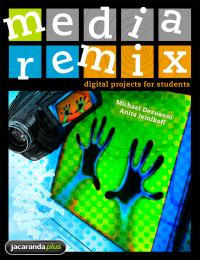In my film an media curriculum class today a question arose about the role of politics in the media literacy classroom. The focus of the class was on approaches to "controversial" or "disputable" media texts and alternatives to discussion and debate in the media classroom. This was in the context of how a teacher might engage middle years students to critically respond to texts that rely on sexist and racist stereotypes - where students resist "theory" based lessons. I introduced the practice of culture jamming and the students used editing software to remix / jam a controversial video game to change its meaning and draw attention to some of its problematic content. The students agreed that this was a productive and meaningful alternative to respond to such texts. However, the inevitable questions arose - who gets to decide what is controversial and to what extent should a teacher be directly "political" in the classroom?
Of course, media literacy education often deals overtly will political questions, both in the more traditional sense of party politics and in the broader sense of socially and culturally based politics. However, my students put forward a range of views about how overtly political they believed media classrooms should be. Some believed media education should aim to intervene in students' social and cultural roles. Others believed it was wrong for media teachers to overtly 'politicize' the classroom. Particularly interesting was that several of the students indicated that they knew little about politics because they had not learned about it in secondary school and they indicated that they felt the system had let them down.
Personally, I believe that media classrooms are a space in which political ideas should be raise. However, students are unlikely to respond to polarizing viewpoints or soap box positions. Furthermore, the outcome of classroom activities should never be to have students arrive at a predetermined disposition towards an issue. Media classrooms should be spaces in which a range of viewpoints is possible and in which differing positions are accepted. Of course, this is not to say a teacher should not put forward their own position - but it should be recognised as one of a number of positions to take into consideration.
C.S. Lewis on writing
4 weeks ago

